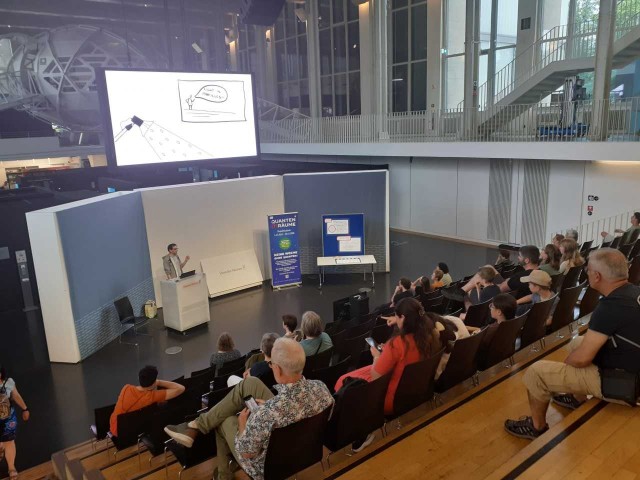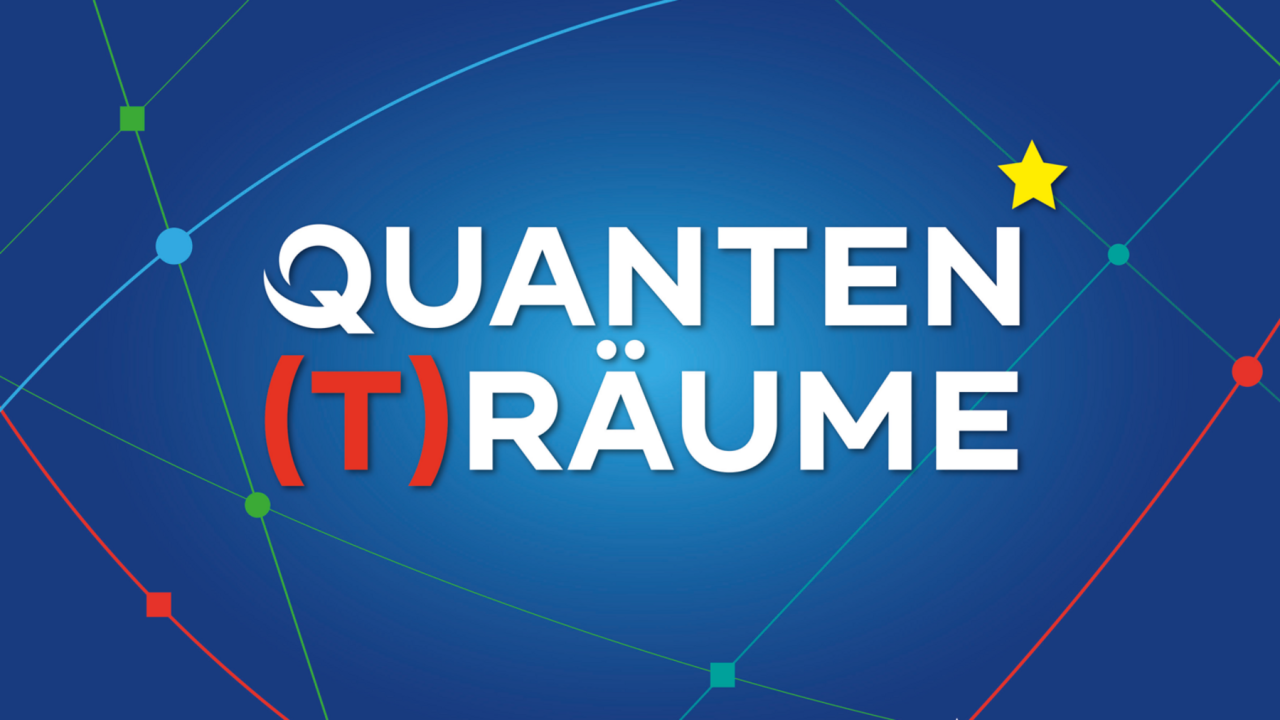21 August 2024
MCQST is a partner in the project Quanten(t)räume - a word play on the German word, meaning quantum spaces and quatum dreams. Starting from the 6th of August, the joint project "Quanten(t)räume" will regularly provide an opportunity to learn about the latest research in quantum technologies, engage with experts, and contribute your own ideas for practical applications.
Super-secure data transmission, targeted cancer therapies, autonomous driving, improved climate protection—quantum technologies and photonics could unlock all of this and more. "We aim to familiarize people with the fundamentals and current state of research, and to collaboratively explore potential applications," says Lorenz Kampschulte, Head of the Education Department at the Deutsches Museum and coordinator of the joint project "Quantum(t)räume," funded by the Federal Ministry of Education and Research (BMBF).
The project partners include the Deutsches Museum, the Max Planck Institute of Quantum Optics with the PhotonLab, the Fraunhofer Institute for Systems and Innovation Research ISI, the Technoseum (State Museum of Technology and Labour in Mannheim), the student initiative PushQuantum, the Munich Centre for Quantum Science and Technology (MCQST), the quantum start-up IQM, and Munich Quantum Valley (MQV).
For over six months, experts from these institutions have collaborated closely to develop an interconnected outreach concept focused on the application potential of quantum technologies. "Outreach means bringing our topics to the forefront of society," says Lorenz Kampschulte. "This involves identifying the most effective ways and places to engage people, conveying the content in an accessible manner, and ideally, sparking meaningful discussion."
 © Deutsches Museum
© Deutsches Museum One concrete result of the collaboration is the ‘Quantum Tuesdays’, which will take place regularly starting the 6th of August. At the premiere in the auditorium of the Deutsches Museum, the joint project was briefly presented in a partner round. This was followed by a so-called ‘flash talk’, a short presentation by PushQuantum on the topic of ‘superposition’, and the PhotonLab presented the current status of a demonstrator that is currently being developed under the title ‘From qubit to quantum computer’. The program was rounded up by insights into the current special exhibition ‘Light and Matter’, developed by Deutsches Museum in collaboration with MCQST. ‘Of course, this not only fits in perfectly with our project in terms of content,’ says coordinator Kampschulte, ’but also conceptually with the last area, where visitors can leave their questions and suggestions at a postcard station.’ In future, one question from these postcards will always be answered at the Quantum Tuesdays. The opening question is: ‘What is a qubit?’. Further questions and answers can be found on the Quantum Mail webpage.
Further information on the project's events can be found on the the
official project page (in German).
The text was adapted from the original press release on the
Deutsches Museum website.
